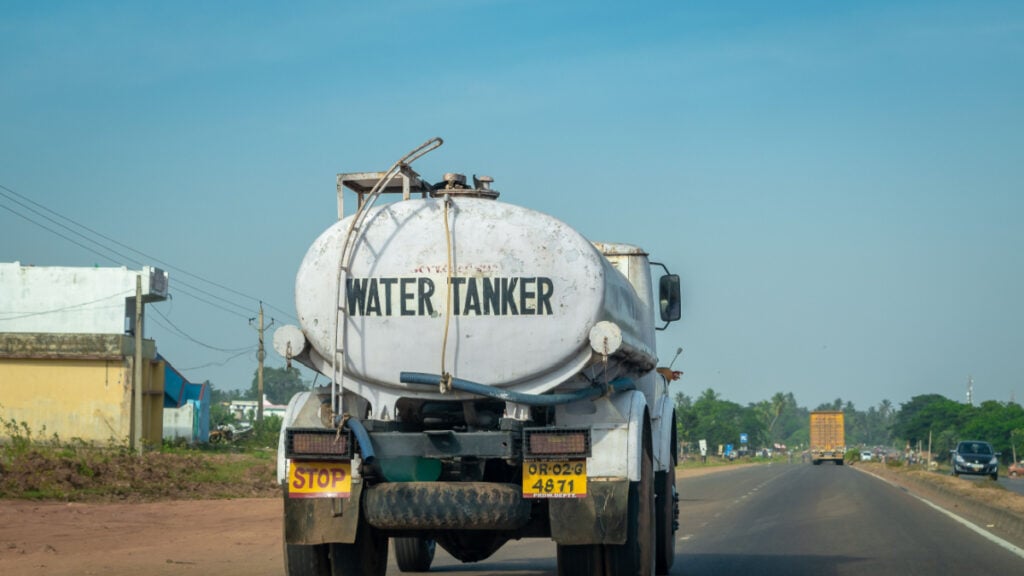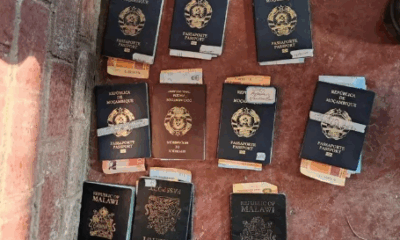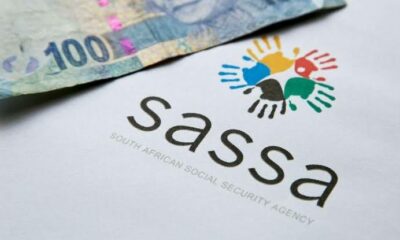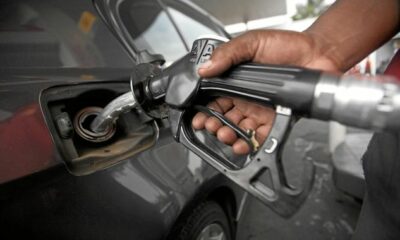News
Terror at the Tap: How Water Tanker Mafias Are Holding South Africa Hostage

As South Africa’s water crisis deepens, criminal mafias are hijacking the country’s most essential resource and experts now want them labelled as terrorists.
For many South Africans, turning on a tap and finding it dry has become a grim daily reality. But the droughts, aging pipes, and infrastructure collapse tell only part of the story. A darker force is now choking water access across the country organised criminal networks known as water tanker mafias.
These syndicates have turned desperation into an industry. And their tactics, from extortion and sabotage to threats and outright violence are prompting serious calls for them to be prosecuted not just as criminals, but as terrorists.
From Emergency Stopgap to Exploitation Racket
Originally, water tankers were intended to be a temporary measure during infrastructure failures or droughts. But as the government has failed to close the service gaps, these stopgaps have morphed into a profit-hungry parallel industry and that’s where the mafias saw their opening.
In provinces like Gauteng, KwaZulu-Natal, and now the Eastern Cape, the tanker mafias have become deeply embedded in local procurement networks. Bribery for contracts, deliberate sabotage of municipal systems, illegal water sales, and even contamination of supplies have all been reported.
“These groups don’t just exploit broken systems, they help break them to stay in business,” said Dr Ferrial Adam of WaterCAN, a civil society group advocating for water justice.
Intimidation on the Frontlines
It’s not only municipalities and residents feeling the pressure. Humanitarian organisations are now in the crosshairs too.
In the wake of July’s devastating floods in the Eastern Cape, emergency relief group Gift of the Givers was blocked from delivering clean water to Mthatha, where the local treatment plant had failed.
Ali Sablay, the organisation’s spokesperson, described a chilling encounter: “Two cars pulled up while our trucks were collecting water and ordered us to leave. They told us we weren’t welcome and threatened us if we returned.”
Such brazenness, especially in a disaster zone, has sparked national outrage. But it’s also lifted the veil on just how powerful and emboldened these groups have become.
R2.4 Billion and Counting: Gauteng’s Costly Dependence
Gauteng, South Africa’s economic powerhouse, has become a major hotspot for tanker mafia activity. Between 2018 and 2023, municipalities in the province spent nearly R2.4 billion on water tanker services.
In Hammanskraal, where a 2023 cholera outbreak highlighted deep infrastructure failures, over 1,000 residents still rely on tankers for their daily supply more than a year later.
And it’s not just about access. These illegal tanker operators often charge up to 15 times the city rate. In parts of KwaZulu-Natal, like Adams Mission, this price gouging has become the only option for thousands of families.
A Crime or an Act of Terrorism?
According to the South African Human Rights Commission (SAHRC), what’s happening goes beyond fraud or corruption. It’s sabotage with national consequences.
Dr Henk Boshoff and Peacemore Mhodi of the SAHRC argue that these actions meet the criteria under the Protection of Constitutional Democracy Against Terrorist and Related Activities Act (Pocdatara).
The law defines terrorist activity as any act that causes serious interference or disruption of essential services, exactly what water mafias are doing.
“Water is not just a utility. It is a constitutional right and a matter of survival,” said Boshoff. “When syndicates deliberately manipulate access to it, the harm is existential. They threaten public health, dignity, and democratic stability.”
Using terrorism legislation would empower law enforcement to pursue these groups more aggressively, disrupt their financial networks, and impose far harsher penalties.
Every Province, Every Level: A National Crisis
The SAHRC, in partnership with the University of the Witwatersrand, is running the South Africa Water Justice Tracker, a project examining why so many local authorities fail to deliver water.
Interviews with 96 of the country’s 144 water service authorities revealed a disturbing pattern: the presence of tanker mafias in every province surveyed.
These aren’t isolated cases. They’re symptoms of a national failure and a warning sign of things to come if left unaddressed.
What Happens Next?
South Africa’s water supply was already in crisis. Climate change is tightening the squeeze, and population growth is pushing demand to the brink. Now, with organised crime sabotaging what little infrastructure remains, the situation has become unsustainable.
The Department of Water and Sanitation estimates that R90 billion annually is needed over the next decade to fix and expand infrastructure. But even that may not be enough if tanker mafias are allowed to continue operating with impunity.
There is growing support among civil society and legal experts to treat this as a national security issue. If terrorism charges are brought, it could mark a turning point in how South Africa defends its most precious resource, not just with policy, but with power.
What began as a workaround for failing water systems has now become a full-blown criminal industry one that threatens lives, violates rights, and undermines democracy. If the law doesn’t evolve to meet this threat, South Africa may find itself paying far more than just inflated tanker fees.
{Source: BusinessTech}
Follow Joburg ETC on Facebook, Twitter , TikTok and Instagram
For more News in Johannesburg, visit joburgetc.com

























